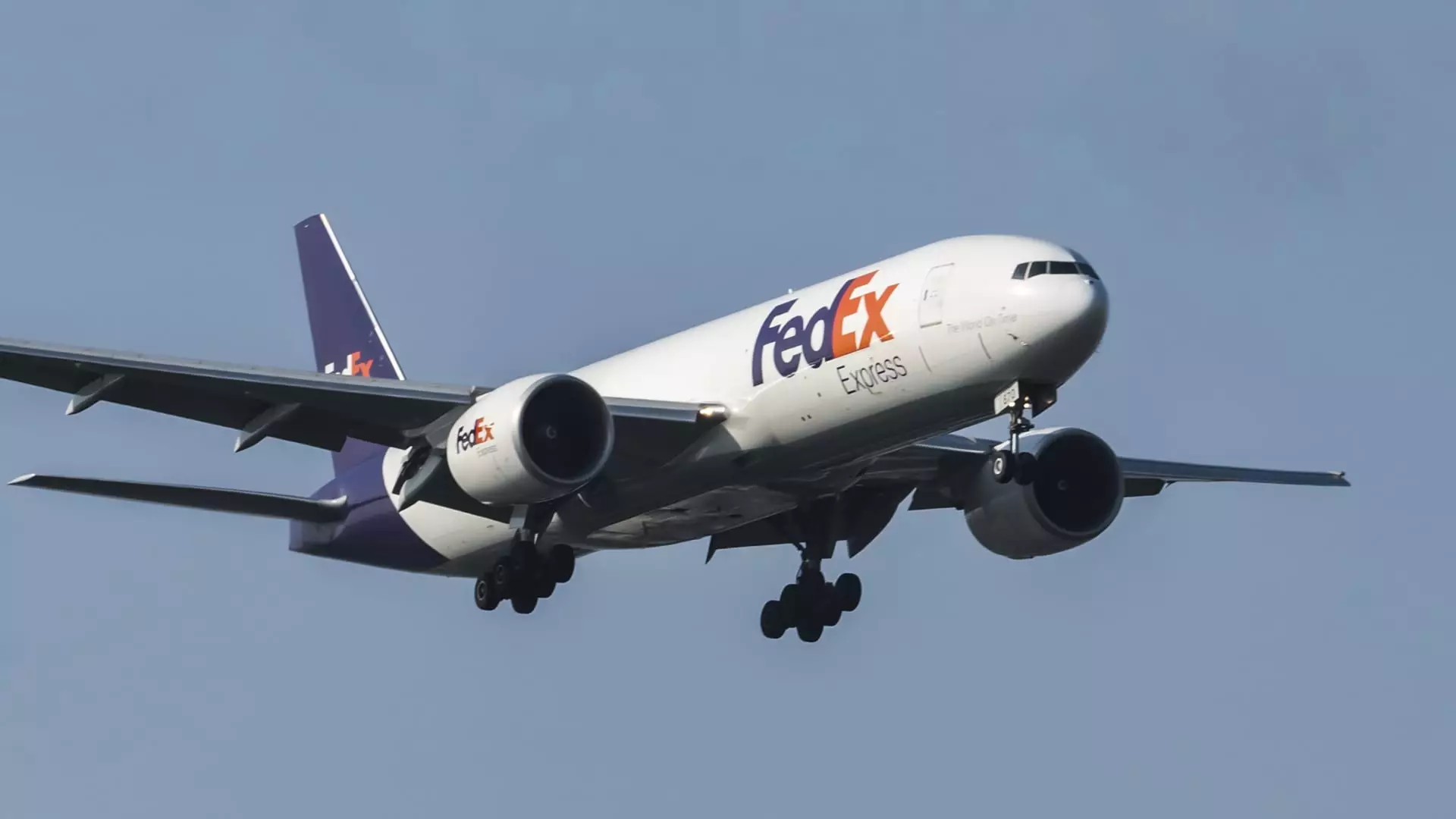FedEx, the renowned package delivery giant, encountered a substantial setback as its shares plummeted over 9% during after-hours trading on Tuesday. This downfall was triggered by the company’s decision to revise its revenue forecast downwards due to weakened demand, which directly impacted sales. Previously projecting flat sales for the fiscal year, FedEx now anticipates a low-single-digit decline in revenue. Analysts, on the other hand, had predicted a minimal decrease of less than 1% in revenue for the current fiscal year. Unfortunately, this is not the first occurrence of a decline in revenue forecast by the company, as it is the second consecutive quarter where FedEx had to adjust its sales outlook.
FedEx cited its largest unit, the Express unit, as the most challenged during the quarter. The Express unit experienced a decrease in demand, as well as surcharges and a shift of customers to more affordable services. These factors significantly contributed to the decline in revenue for the company. The filing by FedEx indicated that it anticipates its revenue to continuously face pressure in the remaining period of the 2024 fiscal year due to turbulent macroeconomic conditions. These conditions may have an adverse effect on customer demand across all transportation companies under the FedEx umbrella. It is important to note that the fiscal year for FedEx concludes on May 31. Despite the revenue decline, FedEx remained optimistic about its operating income, expressing confidence that it would improve due to its implemented cost-cutting strategies.
Underperformance in Key Metrics
Examining the performance of FedEx against the expectations of Wall Street analysts, adjusted earnings per share for the company stood at $3.99, falling short of the projected $4.18. Furthermore, automotive revenue for the three-month period ending on November 30 amounted to $22.17 billion, slightly lower than the expected $22.41 billion. Although FedEx reported a net income of $900 million, or $3.55 per share, showing growth in comparison to the previous year, it failed to meet analyst forecasts. The company’s adjusted earnings of $1.01 billion or $3.99 per share reflected a substantial increase of over 25% from the previous year, partly attributed to the implementation of cost-cutting initiatives. Nonetheless, revenue exhibited a decline of 3%, reaching $22.17 billion from the previous year’s figure.
Despite the disappointing results, FedEx CEO Raj Subramaniam acknowledged the company’s progress amidst the challenging demand environment. The CEO expressed his satisfaction with the consecutive quarters of operating income growth and margin expansion, even in the face of lower revenue. He attributed this achievement to the ongoing transformation efforts undertaken by FedEx.
FedEx’s struggle with declining revenue and weakened demand has posed significant challenges for the company. The company’s revised revenue forecast and consecutive quarters of lowered sales outlook have prompted concerns among investors. While operating income is expected to improve due to cost-cutting measures, it is imperative for FedEx to devise strategies to regain lost revenue and navigate through the uncertain demand environment.

Leave a Reply